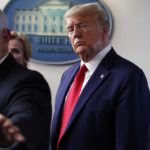 One of the defining features of the past few years has been the general decline in public trust in governments and other institutions. This trust is crucial in securing the appropriate public responses to public health emergencies, such as the coronavirus pandemic.
One of the defining features of the past few years has been the general decline in public trust in governments and other institutions. This trust is crucial in securing the appropriate public responses to public health emergencies, such as the coronavirus pandemic.
A new paper from Georgetown University explores how public institutions can respond to the crisis in a legal and ethical way, and therefore ensure the full trust of the public at all times. The paper explores issues such as how to ethically allocate what are increasingly scarce healthcare resources, how to ensure marginalized populations are not locked out of care, and the balance between public health and civil liberties.
“How we respond to this pandemic, whether we act ethically and safeguard the most vulnerable among us, will be a test of our humanity,” the authors say. “Everyone will suffer, and many will die, in the coming months, but those who are unemployed, uninsured, poor, or disabled will suffer most. As a society, we have an ethical duty to do all we can to meet the needs of the most disadvantaged among us.”
Ethical response
The authors believe that some pointers can come from past crises, such as during World War II, when governmental authority was used to mobilize industry behind key public requirements. There are also steps governments can take to ensure that marginalized groups receive their fair share of what are scarce resources.
They argue that these processes should involve the public and be as transparent as possible about the scientific evidence that underpins them. This is also likely to be an international issue as well as a national one, with lower income countries struggling to secure the resources they need.
“Globally, lower-income countries will face much more scarcity than wealthier states and, if Covid?19 takes hold, a higher burden of disease,” the authors say. “The United States is ethically obligated to assist–even if this means reducing American stockpiles–to maximally protect and equally value all human life.”
Recommendations for change
The paper provides a number of recommendations to help ensure that vulnerable populations receive the access to care they need. This includes making sure that testing, care, and treatment of the virus is free so that people don’t choose to delay or avoid care.
The paper tackles both the economic and social disruption that is resulting from the measures being put in place to control the spread of the virus, including quarantines and social distancing guidelines. They urge governments to protect civil liberties by only employing the restrictive measures necessary to protect public health, and no more, with these steps driven by the best scientific guidance.
“At a time of vast inequities, we are all only as safe as the most vulnerable among us–both in the United States and globally . . . . ,” the authors conclude. “We are in uncharted territory, where vital human connections and economic activity are disrupted in ways not seen in generations. If we want to safeguard the public’s health while being faithful to our most fundamental values, then we must ensure that our response is effective, ethical, and equitable.”